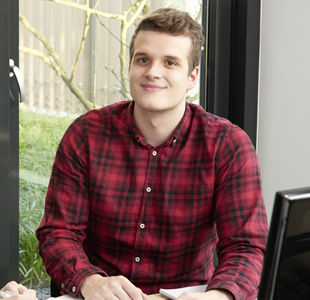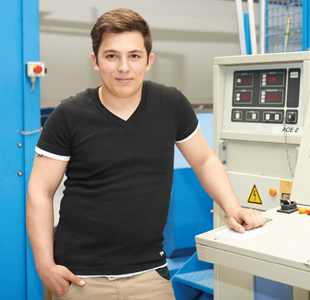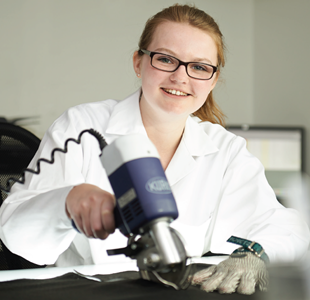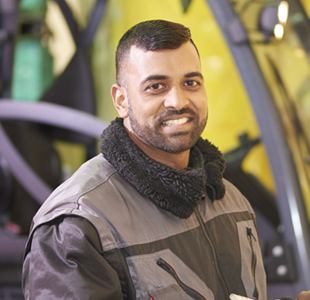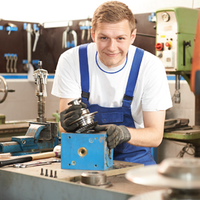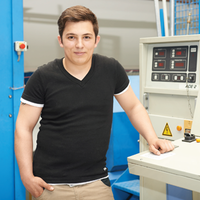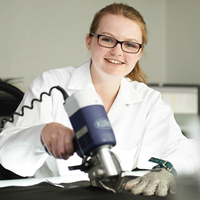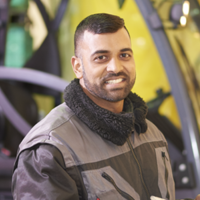What is a typical day like?
I work from 7.00am to 3.15pm. In the morning, I first take a look at: What happened the previous day? Were there any difficulties? What needs to be dealt with most urgently? So I first quickly structure my initial activities. I then go about my tasks, such as scheduling, preparing for and carrying out modernisation and optimisation of existing plants, and performing maintenance and servicing activities on the production facilities. Depending on how extensive they are, these tasks are carried out with fellow workers or independently.
What tasks do you carry out a lot? What tasks have you learned to do up until now?
A lot of the work I do, such as plant failures, involves first seeing where things have gone wrong.
I also make control changes to the machines, carry out rewiring work, build switch cabinets or compare current/target switching plans. There are also some administrative tasks such as scanning and copying.
Where is your main place of work?
I work both in production on the machines, and in the electrical workshop.
What other departments are you learning about during your apprenticeship?
During placements in production, I am getting to understand the machines better. I also spent some time getting basic mechanical training in the metalworking department.
What do you enjoy most about the work? What do you like best?
Building switch cabinets. You can concentrate on getting the job done from start to finish.
Which vocational college do you attend? What is a typical day like at your vocational college?
I attend the technical college in Steinfurt. The teaching was in blocks for the first two years. That meant attending college full-time for two weeks, and then four weeks working in the business. At the moment I attend college once or twice a week, and spend the rest of the time in the business.
Which subjects are you studying at vocational college?
Maths, Electronics, German, English, Politics, Business, Sport and Religion.
How are you supported at TWE during your apprenticeship?
By my boss and fellow colleagues. In fact everyone helps me if I have any questions. All the trainees meet with our managers every two to three weeks. You can get things off your chest there if something isn't going so well, or you have requirements or questions with respect to the apprenticeship. For example, at the last meeting we talked about the fact that we are all going to Frankfurt together this year to a large trade fair for technical textiles so that we can see what happens with the products that we manufacture, and how a trade fair like this is organised.
What tips can you give applicants who are applying for this apprenticeship?
Be open and make sure you have good mathematical skills. If you are not sure whether this apprenticeship is right for you, you should do an internship before you decide. I can only recommend this apprenticeship. It is very interesting and never boring.
Do you have any plans once you complete your apprenticeship?
I would like to work here for a while to gain some professional experience. I would then like to study electrical engineering or become an engineer. In any case, I am keen to further develop professionally.
To what extent have you further developed on a personal level during your apprenticeship?
The apprenticeship here at TWE has made me generally more open and self-confident. For example nowadays, I am happy to put forward suggestions myself, which I probably wouldn't have done before.
When you think back, what were your first days at TWE like?
Everything was new! During the first days, I first had to find my way around our large site. And then there were all the new tasks and new colleagues. But the working atmosphere he is very pleasant and team-oriented, so I quickly got into it all and even after a short time, I felt as if I had been working here for a long time.




